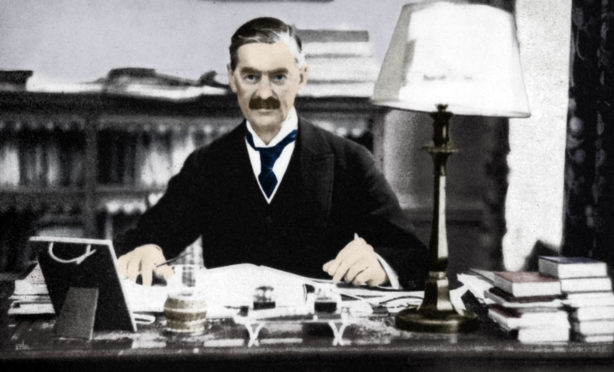We sometimes remember a thing for what we might wish it to be and not what something actually is.
For instance, when commentators refer to ‘Pandora’s Box’, they normally wish to imply chaos. But the truth of the matter is that when Pandora opened the jar (not a box), thereby releasing all the evils of humanity into the world, all that was left was hope.
Similarly, I love it when the media report that COBRA has met, implying a committee. Cobra is not a government executive committee, it is a room – Cabinet Office Briefing Room A. These examples indicate that whilst the presented meaning isn’t right, it isn’t necessarily wrong and because it lacks fidelity, or in the absence of no explanation, the presenter just ‘blends’ it to their needs.
And that is the problem with the way in which we communicate today. We have lost the discipline of presenting facts and then offering opinion. Instead presenters wish to add their value by presenting an amalgam. Indeed, there are some prominent journalists that make it their mission to be the story draped in an opportunity on which they can report.
We have lost the importance of context and detail, and instead we deal in banalities for fear of offending this group or that, or because the presenter has jumped on the first answer that Google provides. I will often research Google for ‘first answers’ as it gives me a sense of whether a prospective speaker is presenting their own experience and knowledge, or an internet acquired narrative.
You may recall that I wrote in the autumn of 2018 that the UK was in Parliamentary crisis. I wasn’t joking. And here we are 11 months later and racing the can down the road. The last 10 days has seen several erudite statesmen and eminent reporters commenting on the constitution and ‘outraged’ at the way in which politicians are acting. But should we be surprised?
The position in which we find ourselves is exactly where the Brexiteers wanted the UK to be – in essence a fait accompli that the UK will be leaving the EU with, and more likely, without a deal. Moreover, it is enshrined in law (which received overwhelming support from parliamentarians) and because we are a liberal democracy that utilises the Westminster model, there is an absolute that we must leave the European Union under Article 50 on or before the 31st October 2019.
But let’s get a few facts right. The UK does not have a constitution in the form of a document written on vellum and solemnly ratified with a grand seal (the likes of the US Constitution of 1787). There is however a general body of laws and rules that define the functions and powers of the UK and includes statutes, royal prerogatives, common law, authoritative commentaries, conventions and of course European law. This collection is what most commentators refer to when they attribute ‘constitution’. And the reason it has worked up until now is because the nation has operated in a global context of alliances, institutions, and accepted ‘norms’, an environment where laws and rules have meaning and relative merit.
Further , we have ensured that our ‘norms’ are relevant to the changing world in which the UK operates. But there is no doubt that the liberal world order is in peril; the surge of populism, nationalism and burgeoning authoritarianism is challenging these ‘norms’ and yet there is no apparent defence or counter-challenge from those charged with the nation’s well-being – our elected members.
We should not underestimate the current threat to this global order (and the unprecedented economic prosperity and peace it has nurtured over the past 60 years). The UK’s situation over Brexit is but a microcosm of the burgeoning decay; as is the unrest and turmoil in Hong Kong.
The situation is further compounded when it appears that both unaccountable and unelected special advisers speak on behalf of the government; these alleged intellects’ apparent shaping of the national agenda is dangerous. Dangerous because they have, by the word of the law, done nothing wrong – they are delivering on the mandate determined by the 2016 Referendum – but they have not acted in the interests of the country. Indeed, they are acting in the interests of a perceived minority collective.
And that is where I have my major issue, an incompetence and predilection to self-interest in our political class has determined that Westminster is not just sick but broken. And why in this time of very real crisis are our politicians vacationing whilst the whip is cracked over the head of everyone else, and in particular the Civil Service, to ‘make Brexit so’.
In this era of vulnerability, and with the UK is on the precipice of the second greatest act of self-harm in its history, it seems odd that I might quote Neville Chamberlain: “In war, whichever side may call itself the victor, there are no winners, but all are losers.”
James Johnston is a business owner, chair of the The Malt Whisky Trail and served as Station Commander for RAF Kinloss

